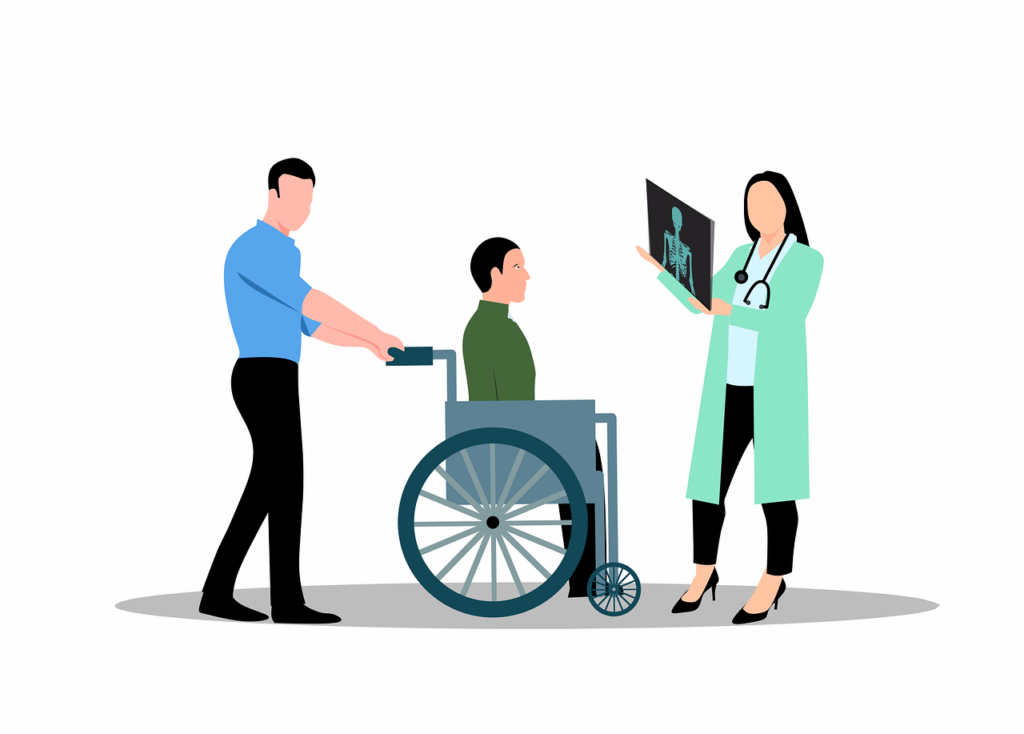
Life can take unexpected turns, challenging us in ways we could never have imagined. One such challenge is adapting to life with a spinal cord injury (SCI). A spinal cord injury can alter every facet of one's existence, from mobility and independence to emotional well-being. Yet, amid these challenges, there is resilience, courage, and a wealth of strategies that individuals with SCIs employ to navigate this new chapter in their lives.
In this blog, we will delve into the world of spinal cord injuries and explore the diverse strategies and insights that empower individuals to adapt, overcome, and thrive. Whether you are personally facing the challenges of an SCI, supporting a loved one on their journey, or simply seeking a deeper understanding, these strategies for adapting to life with spinal cord injuries offer a glimpse into the remarkable resilience of the human spirit. Together, we will uncover the tools, resources, and mindset needed to embrace life's unexpected twists and continue on the path to a fulfilling and independent existence.
STRATEGIES AND TIPS FOR RECLAIMING INDEPENDENCE AFTER A SPINAL CORD INJURY
1. Seek Professional Guidance
The journey to independence after a spinal cord injury begins with seeking professional guidance. Medical professionals, physical therapists, and occupational therapists can provide valuable insights and develop a personalized rehabilitation plan. These experts can help you regain strength, mobility, and functional skills, setting the foundation for independence.
2. Assistive Devices and Technology
Today's advancements in assistive devices and technology have opened up new opportunities for individuals with spinal cord injuries. Wheelchairs, mobility aids, voice-controlled devices, and adaptive computer software can empower you to navigate the world more independently. Exploring and incorporating these technologies into your life can significantly enhance your quality of life.
3. Embrace Adaptive Sports and Recreation
Physical activity and sports can play a crucial role in regaining independence and boosting self-esteem. Many adaptive sports, such as wheelchair basketball, hand cycling, and adaptive skiing, offer not only physical benefits but also social connections and a sense of accomplishment. Engaging in these activities can help you stay active and build confidence.
4. Build a Support Network
Reclaiming independence does not mean doing it all on your own. Building a strong support network of family, friends, and peers who understand your challenges is vital. They can provide emotional support, assist with daily tasks, and share their own experiences and advice. Joining support groups or online communities for individuals with spinal cord injuries can also offer a sense of belonging.
5. Home Modifications
Adapting your living space to your needs is essential for regaining independence. Consider making modifications like installing ramps, widening doorways, and adding grab bars in the bathroom. These changes can create a more accessible and comfortable environment that allows you to move around your home with ease.
6. Pursue Education and Employment
Reintegrating into the workforce or pursuing educational opportunities is an essential part of regaining independence. Vocational rehabilitation programs can provide training and support to help you find suitable employment or retrain for a new career. Continuing education and pursuing your passions can provide a sense of purpose and independence.
7. Advocate for Accessibility
Advocating for greater accessibility in your community not only benefits you but also future generations. Participate in disability advocacy groups and work with local organizations to raise awareness about the importance of accessible infrastructure, transportation, and public spaces. Your efforts can lead to positive changes that benefit the entire community.
8. Maintain positive mindset
Acceptance is key to moving forward. Embrace your new reality and focus on what you can control rather than dwelling on what you cannot. Develop a positive mindset that emphasizes resilience, adaptability, and gratitude.
Conclusion
Understanding strategies that influence the patients’ coping with the SCI will contribute to the nursing body of knowledge. It also helps to the other health-care professionals as well as the families in reinforcing the most effective coping strategies and promoting the quality of care. Such coping strategies also can help patients to achieve a greater sense of empowerment.
Adapting to life with a spinal cord injury is undoubtedly challenging, but with the right strategies and a positive mindset, you can reclaim your independence. Seek professional guidance, leverage assistive technology, stay active through adaptive sports, and build a strong support network to help you along the way. By taking these steps, you can lead a fulfilling and independent life despite the challenges you may face. Remember, your resilience and determination can be powerful tools on your journey to independence.
References
https://www.180medical.com/blog/8-tips-for-adapting-after-a-spinal-cord-injury/